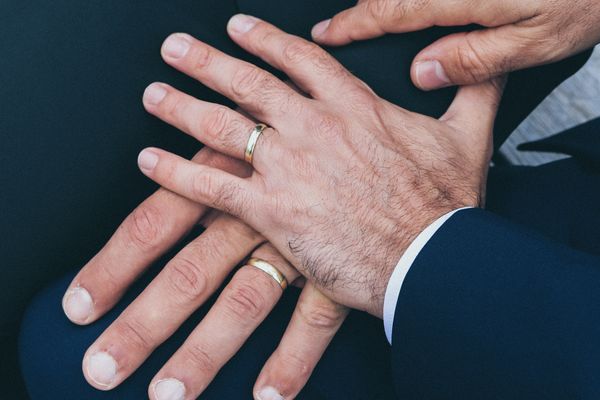Last week, Mississippi passed the
1. It’s all about bathrooms
When I see conversations about the bill online, bloggers often refer to it as the “bathroom bill.” In fact, the three religious beliefs that permit business owners to discriminate consist of: “Marriage is or should be recognized as the union of one man and one woman; sexual relations are properly reserved to such a marriage; and male (man) or female (woman) refer to an individual’s immutable biological sex as objectively determined by anatomy and genetics at time of birth.”
This means that the bill carries implications for unmarried couples engaging in premarital sex, single mothers and fathers and straight children with LGBT parents.
2. It will affect all of Mississippi
Less than 10 hours after Governor Bryant signed the bill into law, his own capital city passed an ordinance against it. Of this ordinance, the Jackson City Council said, “You can use this House Bill to discriminate against African Americans as well as people (for) their sexual orientation. We are in this together, black folks, gay folks ... we need to be in it together." The resolution passed unanimously, and a similar resolution passed in Biloxi, a major tourism hub for the state.
3, It will prevent same-sex marriages
A clerk who recuses him or herself from issuing a marriage license must provide an immediate substitute. Similarly, a social services worker who refuses to work with a gay or transgender child or LGBT parents must provide a substitute.
4. It allows for employees to fire gay individuals
This myth is false only because it has always been legal for Mississippi to fire individuals due to their orientation. Protections for LGBT individuals — or penalties for conservative Christian employers, depending on your preferred word choice — never existed in Mississippi.
5. All of Mississippi's religious leaders support it
Some do, of course, like the Southern Baptist representatives who voted for it. But other Baptist pastors such as Stan Wilson and Bert Montgomery oppose it. Wilson said, "We are called, by Jesus, to love and serve our neighbor.” Presbyterian minister and lobbyist Rev. Rims Barber also criticized it, saying, "We still have hangovers from racial past that aren't eliminated yet. There are newer prejudices against immigrants and homosexuals." The Bishop of the Episcopal Diocese of Mississippi also issued a statement condemning the bill.
6. It only covers wedding-related goods and services
Some bloggers have spread the notion that HB 1523 only relates to services necessary for a wedding, such as providing a cake. They claim that LGBT people worried about rejection from restaurants or other business are simply incorrect.
It is true that the law does not explicitly sanction the rejection of LGBT people from restaurants. But the vagueness of the language is the problem, as it never specifies only wedding-related services.
This broad language spans anything from a counselor dismissing a depressed kid questioning his orientation to a landlord refusing to house LGBT parents and their (straight or gay) children. For every gay kid turned away or every family evicted, a hundred other families will fear for themselves, so bill impacts LGBT people psychologically as well as materially.
Whether you agree with that or not, don't share the misconception that only wedding-related services can and will be denied. The House and Senate could have specified wedding-related services in the bill if they intended it as such, but they chose the words “any action” instead.
Supporters of the bill must stand for all of it, rather than pretending it doesn’t say all that it does. Otherwise, they not only falsely portray opponents as exaggerating, but gaslight LGBT people who experience real anxiety over its real consequences.
The bill is only four pages and accessible online, so please read it to completely familiarize yourself with its exact provisions.





















